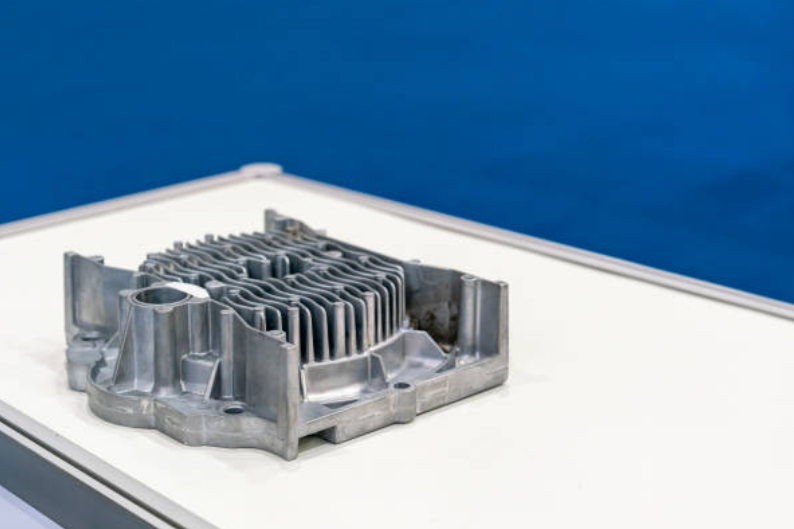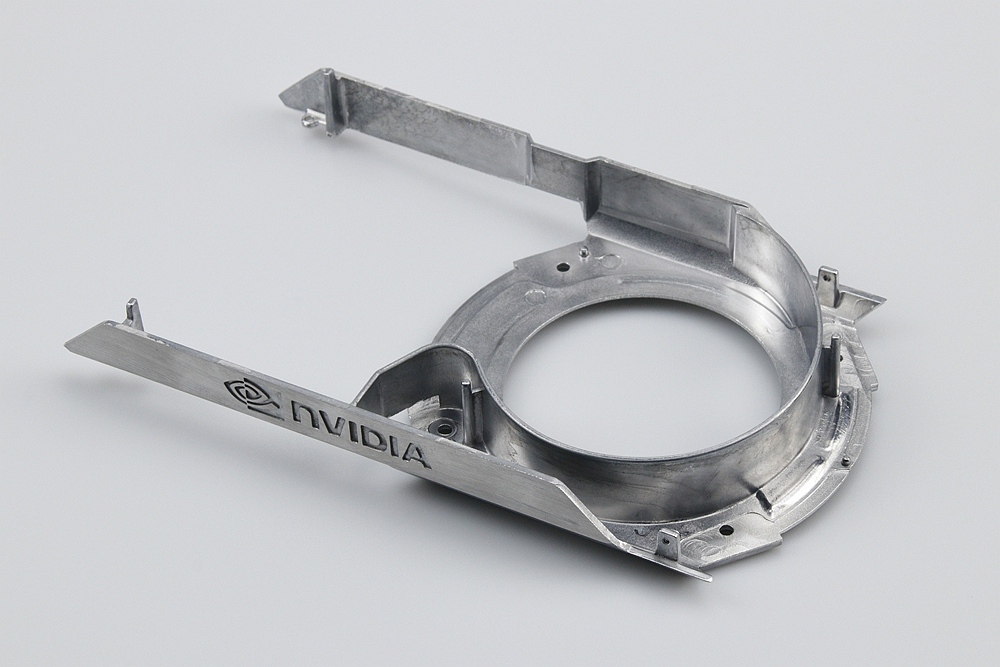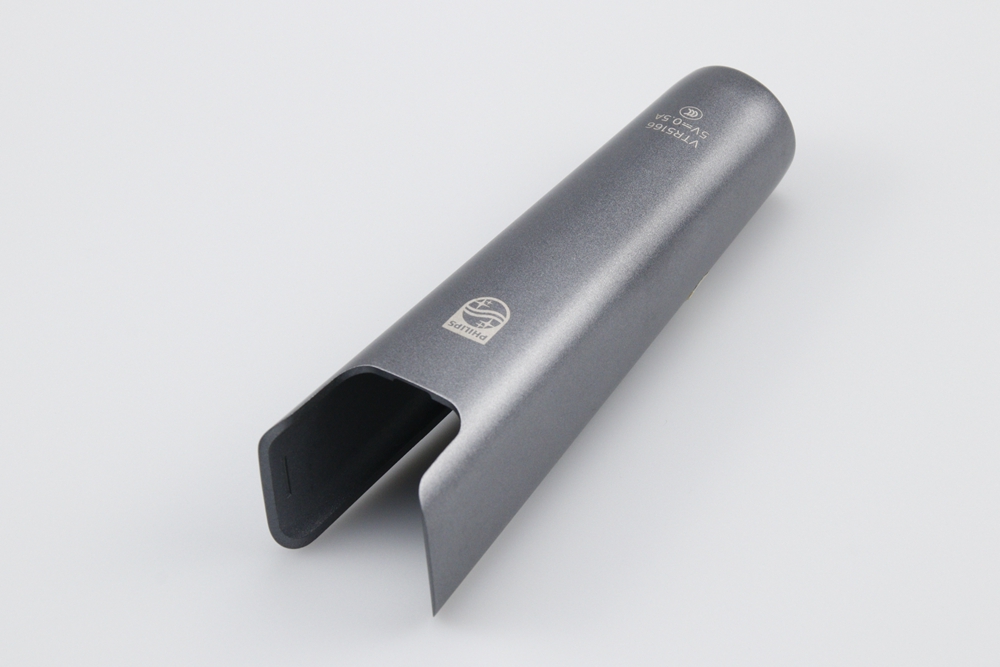What Are the Common Surface Treatments for Aluminum Die Castings?
Aluminum die casting is a metal casting process that produces complex, high-tolerance aluminum parts. Once the aluminum is die-cast into the desired shape, surface treatments are often applied to enhance specific properties and allow the part to function optimally in its intended application. Some of the most common surface treatments for aluminum die castings are:
Anodizing
Anodizing is one of the most popular surface treatments for aluminum. It is an electrochemical process that creates an oxide layer on the surface of the aluminum. This oxide layer is a protective and decorative coating that increases corrosion and wear resistance.
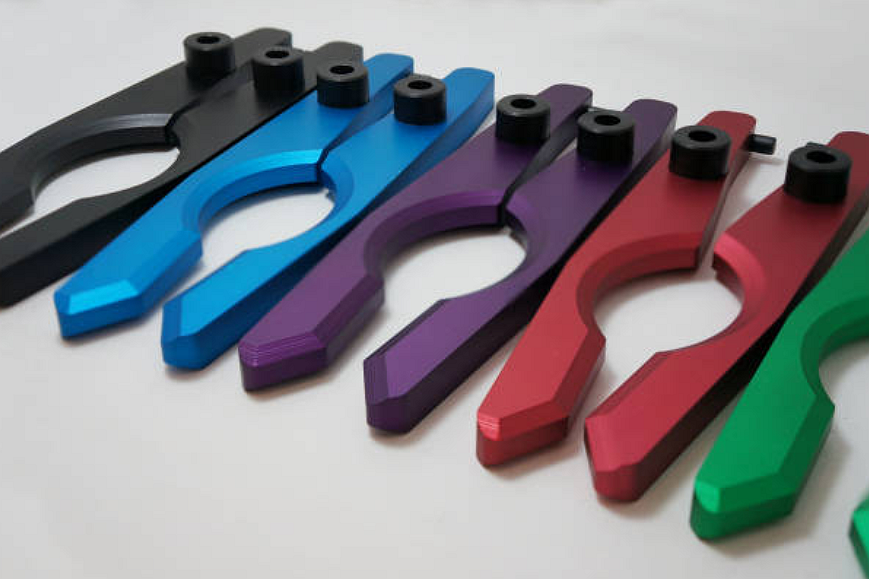
The anodizing process involves immersing the aluminum part in an acid solution like sulfuric acid or chromic acid and running an electrical current through the solution. It causes the surface aluminum to oxidize and form a porous aluminum oxide layer that can be dyed in different colors. Hard anodizing creates a thicker oxide layer, providing even more excellent durability and abrasion resistance.
Anodizing increases aluminum die-cast parts' corrosion and wear resistance, provides electrical insulation, and creates an adhesive base for paints and adhesives. It is commonly used for applications like electronic equipment, automotive parts, and architectural components.
Powder Coating
Powder coating is another decorative and protective finish commonly applied to aluminum die castings. It works by electrostatically applying a polymer powder coating and then curing it in an oven to form a durable, colored coating.
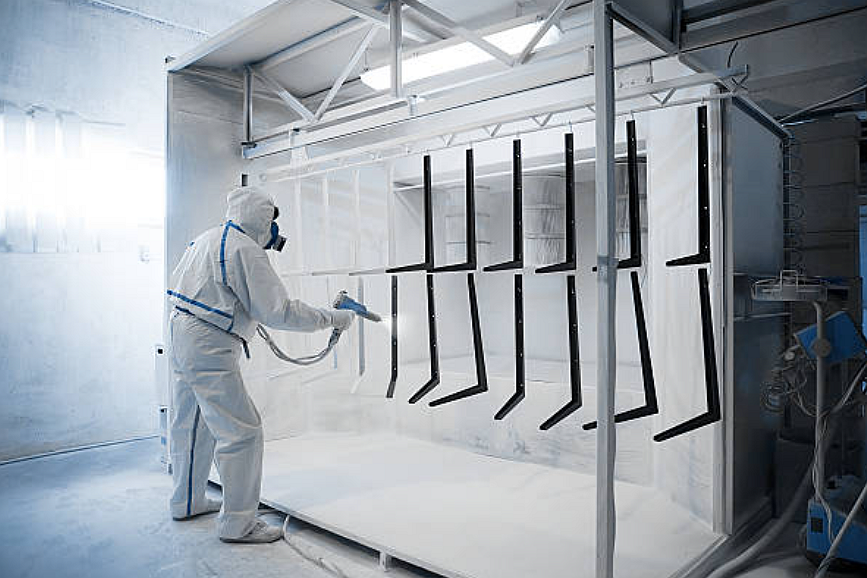
Powder-coated finishes are more rigid and more abrasion resistant than standard paint. The powder coats the recesses and interior cavities of complex aluminum die-cast parts. Powder coating can create very uniform, consistent finishes with many color options.
It is a versatile surface treatment suitable for both indoor and outdoor use. Typical applications include outdoor furniture, sporting goods, auto parts, household appliances, and aluminum extrusions. The high-quality finish resists chipping, scratching, fading, and wearing caused by weather exposure better than conventional paint.
Teflon Coating
Teflon (PTFE) coatings provide an anti-stick, frictionless surface on aluminum die castings. The fluoropolymer resin can be sprayed or rolled onto the aluminum component to create a durable coating.
Teflon's non-stick and lubricious properties make it ideal for aluminum parts used in food processing and industrial cooking equipment. The waterproof and chemical-resistant coating protects the aluminum from caustic cleaning agents.
Teflon-coated aluminum lasts longer, even under high heat conditions or thermal cycling. The coating prevents food and other materials from sticking to aluminum surfaces. It reduces friction-related wear and makes parts easier to clean.
With its high-temperature stability of up to 500°F (260°C), Teflon coatings outperform various plastics and polymers. Applying Teflon to aluminum die-cast parts enhances both cooking performance and longevity.
Chromating
Chromatin is a conversion coating process that deposits a thin chromium layer onto the aluminum surface. It is usually done through an electroplating process where the aluminum is submerged in a chromic acid solution, and electric current applied.
The chromium coating enhances corrosion resistance, increases wear life, and improves paint adhesion. There are two main types of chromate conversion coatings:
Yellow chromate is most commonly used on aluminum die castings—the yellow hue indicates coating thickness and uniformity.
Clear chromate produces a thin, invisible layer of chromium but still provides suitable corrosion protection.
Chromating aluminum creates an excellent foundational pretreatment before powder coating or painting. It is an environmentally-friendly alternative to outdated chromate processes that use toxic chemicals like hexavalent chromium. Industries like aerospace, automotive, and construction utilize chromatin for protective benefits.
Nickel Plating
Electroless nickel plating is often applied to aluminum die-cast parts when a more durable, metallic coating is desired instead of a plastic polymer coating like powder or anodizing.
Nickel plating involves submerging the aluminum die casting into an aqueous solution that contains nickel salts and a reducing agent. An autocatalytic reaction deposits a uniform nickel coating over the entire aluminum surface.
The electroless nickel coating provides excellent corrosion and wear resistance. It creates a barrier against oxidizing environments and abrasive conditions. Nickel plating also minimizes friction and can withstand high temperatures.
Die-cast aluminum parts with nickel coatings have improved hardness, lubricity, and solderability. Typical applications include automotive parts like bumpers and wheels, food processing equipment, medical instruments, and aerospace components.
Chrome Plating
Chrome plating entails electroplating a thin layer of chromium onto aluminum die castings. It is done by suspending the aluminum component in a chrome-plating solution like chromium trioxide and applying an electric current to induce chromium deposition.
The glossy chrome layer enhances aluminum die-cast parts' aesthetic appeal and functional performance. Chrome plating improves hardness, wear resistance, and corrosion protection. It also minimizes friction and can stand up to high temperatures.
Chrome-plated aluminum components have a mirror-like finish that maintains its luster better than nickel or stainless steel platings. However, chrome plating tends to have lower corrosion resistance compared to nickel. It is also susceptible to cracking if applied too thickly on aluminum substrates.
Typical applications for chrome-plated aluminum parts include aftermarket automotive accessories, plumbing fixtures, and consumer appliances. The bright, shiny appearance has high decorative value.
Our One-Stop-Service
Leading parts supplier, Neway announced an exciting 20% off promotion for first-time customers this week. The company has provided specialized rapid prototyping, precision casting, and machining services for over 30 years. "This limited-time offer makes it easier than ever for new customers to experience our one-stop service and quality results," said a company spokesperson. Neway is ready to handle your next custom metal or plastic component project.
